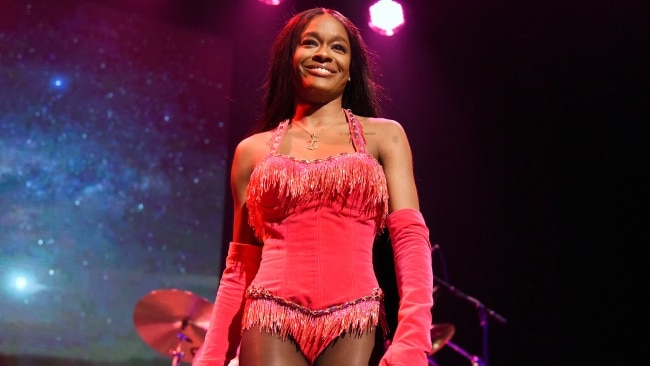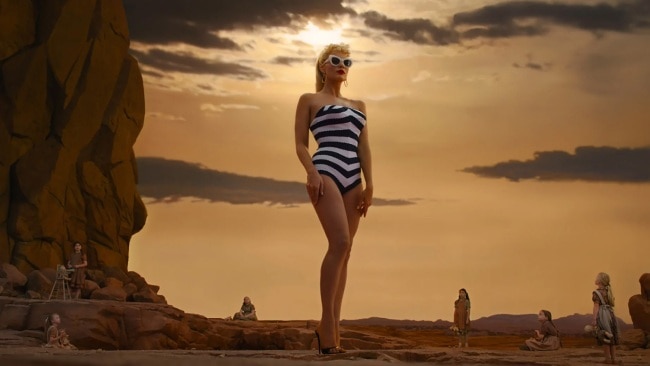The musicians that shaped the Elvis sound
This week's Friday playlist is dedicated to the sounds that influenced The King.

This week's Friday playlist is dedicated to the sounds that shaped The King.
Baz Luhrmann's epic Presley biopic ELVIS has arrived, so we're looking at artists that paved the way for the rock and roll sound.
Without Memphis, there would be no rock and roll. The Deep South city was the home of Sun Records, Stax Records, and Meteor Records.
Sam Phillips, the founder of Sun Records, has a lot to do with the triumph of the genre. In 1950, he opened the Memphis Recording Service, a block away from the iconic Beale Street, the hub of the Memphis music scene. “We Record Anything—Anywhere—Anytime” was the studio's slogan.
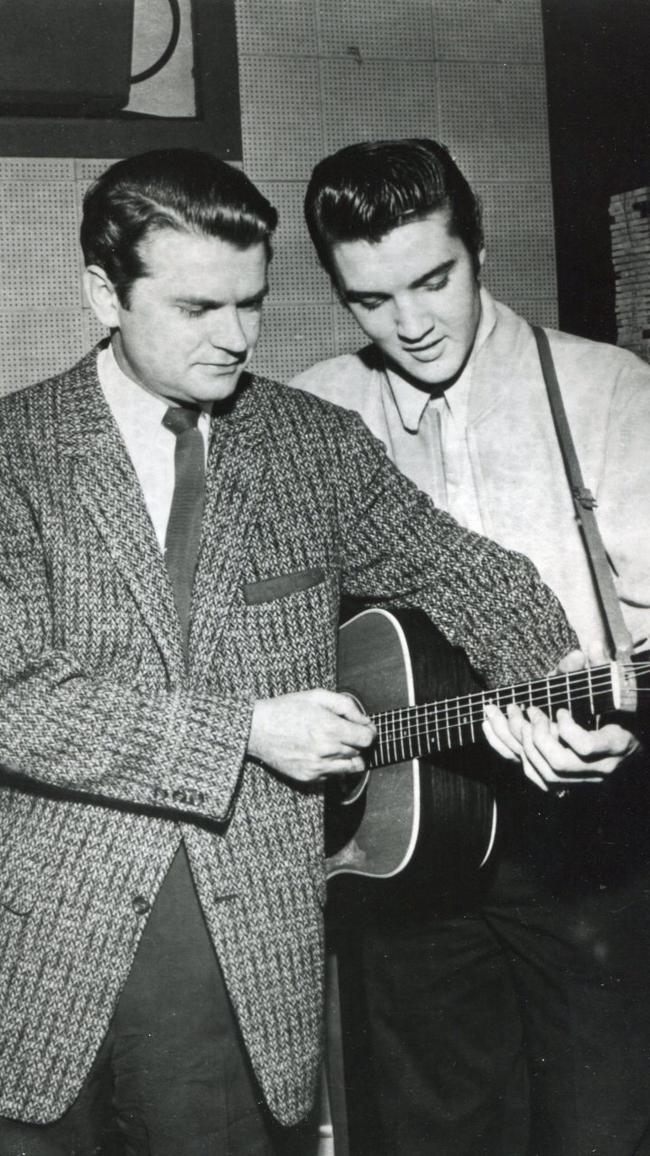
The walk-in studio was open to all, and aspiring musicians flocked there to cut their records. Phillips was a master, who made the first recordings for Elvis, B.B. King, Carl Perkins, Johnny Cash, Jerry Lee Lewis, Roy Orbison, and countless others. He produced and released seminal songs like ‘Blue Suede Shoes,’ ‘Mystery Train,’ ‘Folsom Prison Blues,’ ‘I Walk The Line,’ and ‘Ooby-Dooby.’
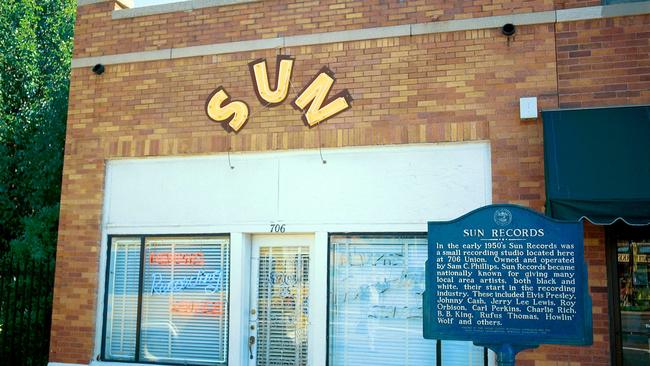
Rock and roll is completely indebted to Black music. An amalgamation of Black American jazz, rhythm, and blues, boogie-woogie, and gospel. "The blues had an illegitimate baby and we named it rock 'n' roll," Little Richard, one of the founding fathers of rock and roll, once said. The “we” refers to era pioneers like Little Richard, Chuck Berry, Sister Rosetta Tharpe, and Bo Diddly.
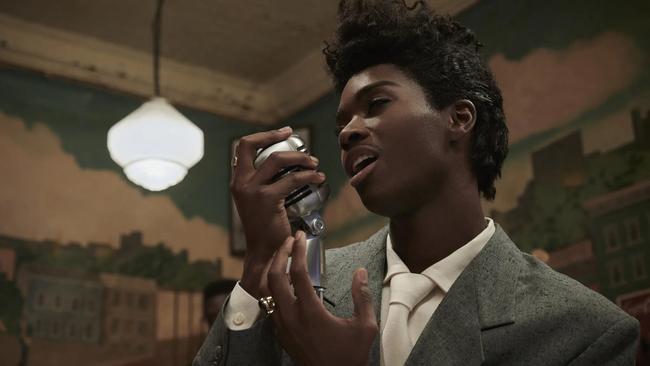
Baz Luhrmann’s new film touches on the influence that this music had on Elvis in informing his sound. Elvis came of age in Memphis just as gospel, soul, and blues melangéd into this hot new sound. The most exhilarating scenes of the film all take place on Beale Street. With performances from Big Mama Thornton, Sister Rosetta Tharpe, B.B King, and (an exquisite) Little Richard.
Sister Rosetta Tharpe
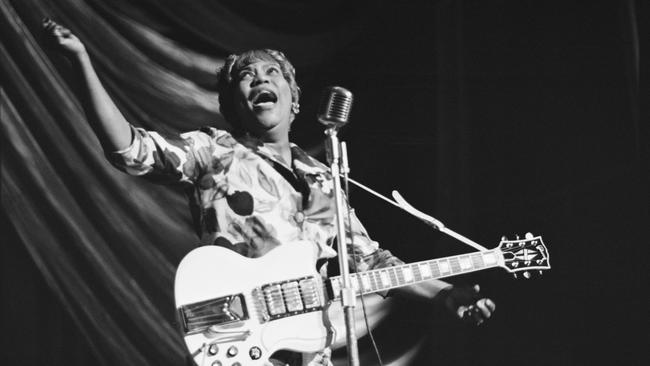
Sister Rosetta Tharpe, the Godmother of Rock and Roll, was a miracle. A daughter of the Sanctified Church, and one of the first gospel singers to gain wide recognition outside the churches of the Deep South. A songwriter, and virtuosic guitar player, who picked up the guitar at age six, performing as Little Rosetta Nubin. Johnny Cash, Chuck Berry, Jerry Lee Lewis, and Isaac Hayes all claim her as an influence.
Portrayed by Grammy-nominated musician Yola in Elvis, Sister Rosetta Tharpe gets mere minutes of screen time, but her impact is colossal.
Arthur ‘Big Boy’ Crudup
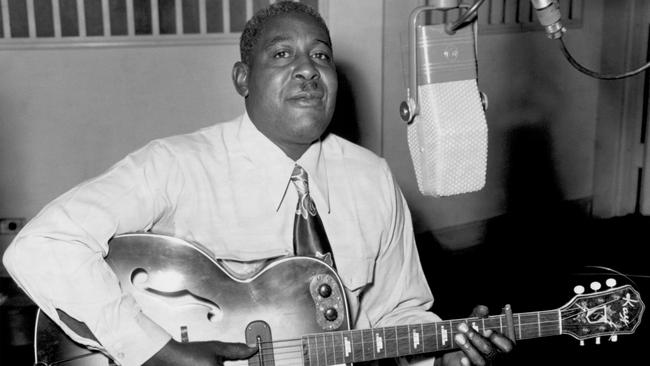
“If I had any ambition, it was to be as good as Arthur Crudup,” Elvis Presley once said about blues musician Arthur ‘Big Boy’ Crudup.
With a singular voice and rough-hewn guitar style — attributed to the fact he didn’t pick up an instrument until he was 30. Arthur Crudup shifted the course of American music, with his song ‘That’s All Right, Mama.’
In the film, a split-screen scene contrasts Crudup (played by musician Gary Clark Jr.) performing the song, with a young Elvis attempting to imitate him with speaking-in-tongues intensity.
Big Mama Thornton
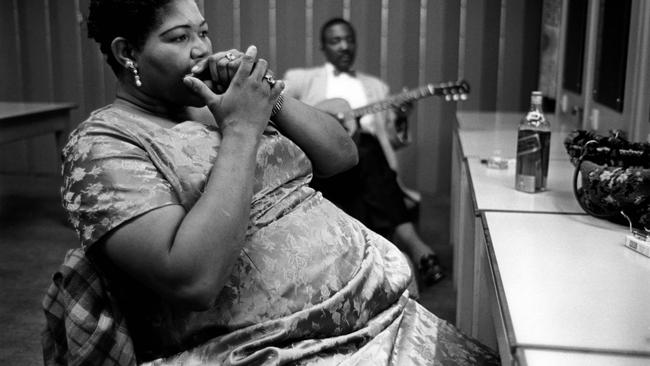
Big Mama Thornton was one of the greatest blues singers of her time. There’s a scene in ELVIS, where Thornton, played by musician Shonka Dukureh, belts out an earth-shattering rendition of her song ‘Hound Dog.’
The track, co-written with Jerry Leiber and Mike Stoller, was Thornton’s only hit song selling over 500,000 copies — a shadow of Elvis’s (watered-down) cover, which sold ten million. She also penned ‘Ball ‘n’ Chain’, which would go on to be covered by Janis Joplin, and become one of Joplin’s signature songs.
Watch: Big Mama Thornton perform 'Ball 'n' Chain' live in 1970:
Little Richard
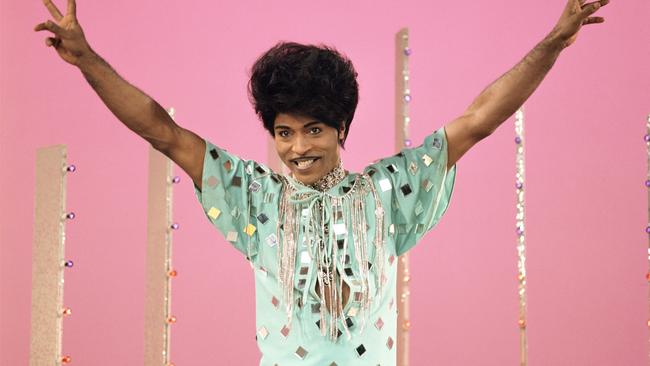
No musician in history had more live charisma than the flamboyant and frenetic Little Richard. A truly avant-garde, potently sensual, queer rock’n’roller, whose influence would carry through to glam rock. All guts and glitter, Richard made explosive rock music, and he did it in sequins, pompadour wigs, and pancake makeup.
B.B. King
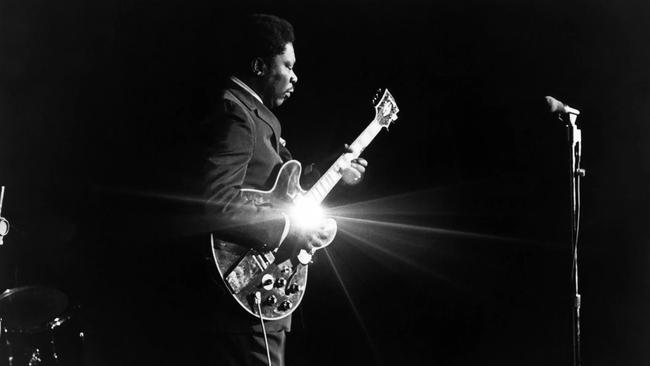
A man who needs no introduction, the ‘Beale Street Blues Boy’, B.B. King. Who famously ran into a burning building to save his $30 guitar — an instrument he wielded like no one else. He seemed to give guitar a life of its own, when he played, the instrument heaved with pain, sorrow and resolve. In ELVIS, King (played by Kelvin Harrison Jr.) is Presley’s right hand man who offers career advice to protect him from bloodsucking industry folk.

